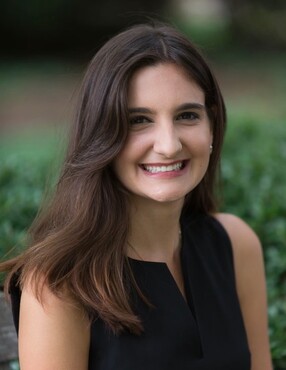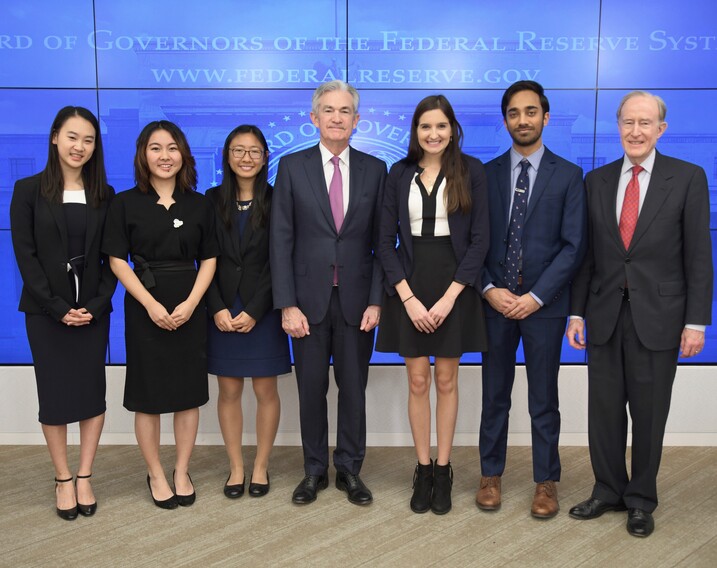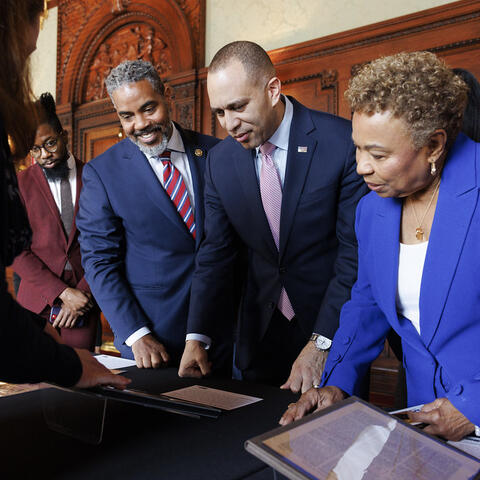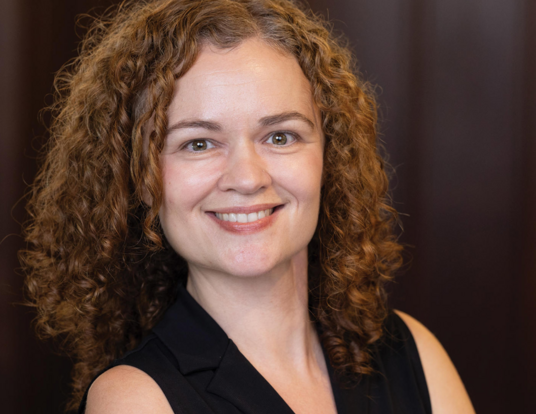An Interest in Rates
Harvard Griffin GSAS Voices: Laura Nicolae, PhD student
Laura Nicolae is a PhD student in business economics. She discusses her research on the Federal Reserve’s impact on the US economy, how she got interested in monetary policy as a Harvard undergraduate, and the inspiration she draws from being a mentor.
Focus on the Fed

I study how US monetary policy—when the Federal Reserve (the Fed) raises or lowers interest rates—affects banks’ lending to households and firms in the economy. Monetary policy is supposed to boost the economy during recessions by making borrowing cheaper and decrease inflation when it is high by making borrowing and spending more expensive. I look at what types of loans become more or less affordable as interest rates fluctuate and how this impacts the economy at a broader scale through spending, employment, and productivity.
This is all relevant because prices have risen faster in the last few years than they have since the 1980s. Inflation had been so low for so long that before the pandemic, many thought it couldn’t be an issue for the US economy again. In response to the surge in inflation, the Fed has been raising interest rates since 2022; the last time it lowered them was before the pandemic.
My current project looks at which types of bank lending have contracted the most as a result of this policy. So far, I have found that in the past few years, when the Fed has raised interest rates, it has had a smaller effect on large banks’ lending than on small banks’ lending. This is probably because large banks already have plenty of deposits to cover all of their opportunities so when interest rates rise, they can keep lending; whereas, smaller banks have to pay their depositors more to hold on to them. As a result, lending becomes costlier for small banks than for large banks, forcing them to cut back on their lending more.
Subject to Debate
When I was a first-year student at Harvard College, I joined the Federal Reserve Challenge Team. The Fed Challenge is a debate competition about monetary policy held at the Boston Federal Reserve and the national Fed Board of Governors in Washington, DC. The competition asks teams to form proposals about what changes to monetary policy the Fed should implement at its next meeting and defend them to current staff and economists there. The judges cross-examined us, asked us questions, and challenged us to defend our policies. That’s how I first developed a passion for the study of monetary policy.

As I got involved with the program, I had the chance to interact with a lot of professors at Harvard’s Faculty of Arts and Sciences and Harvard Business School, some of whom are now my academic advisors. In my senior thesis, I studied how a particular banking regulation passed after the 2008 recession affected future implementation of monetary policy. In the process, I got to see some of the research that my professors were doing and was so fascinated by it that it led me back to Harvard for my PhD.
Inspiration from Mentorship
This summer, I began working with an undergraduate research assistant. They are absolutely amazing—way better at research than I was at the end of my first year. We’ve both learned a lot not only about research but also about working with someone else on a project. Having an assistant has forced me to articulate my work in a way that’s understandable to someone who hasn’t taken a degree’s worth of economics courses. It’s also been interesting to manage someone else instead of sitting in an office coding all the time!
It’s so rewarding to work with someone who hasn’t gone through all the same classes I have, who’s bright-eyed about research, and is open to learning. I am still involved with the Federal Reserve Challenge team and, every year, I meet with the participants to mentor and coach them and answer their questions. Additionally, I mentor undergraduates in a couple of other economics associations. It’s amazing to watch them do legitimate, high-level, advanced economics research for government agencies. I’m constantly impressed by their work and inspired by their drive.
Get the Latest Updates
Join Our Newsletter
Subscribe to Colloquy Podcast
Simplecast



